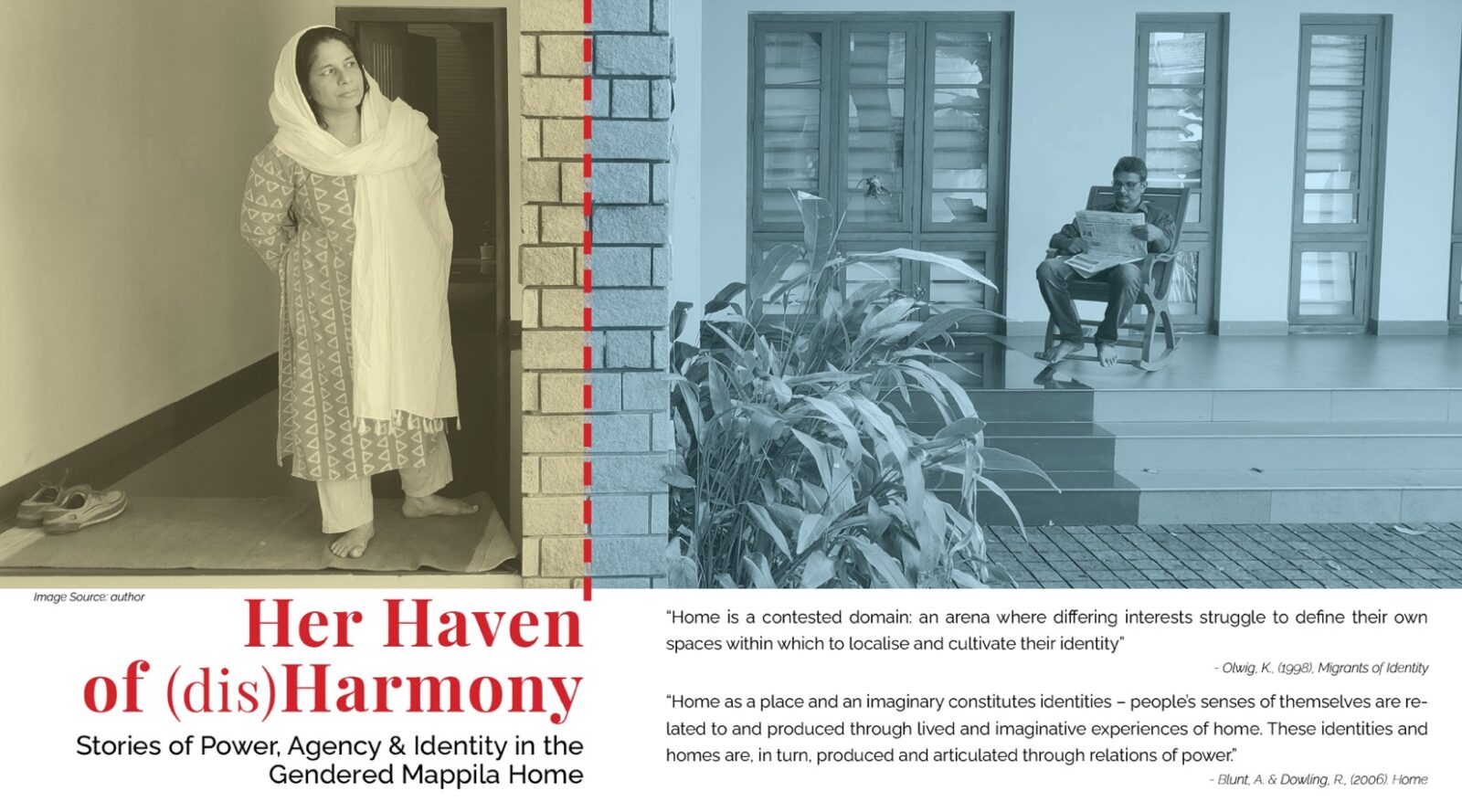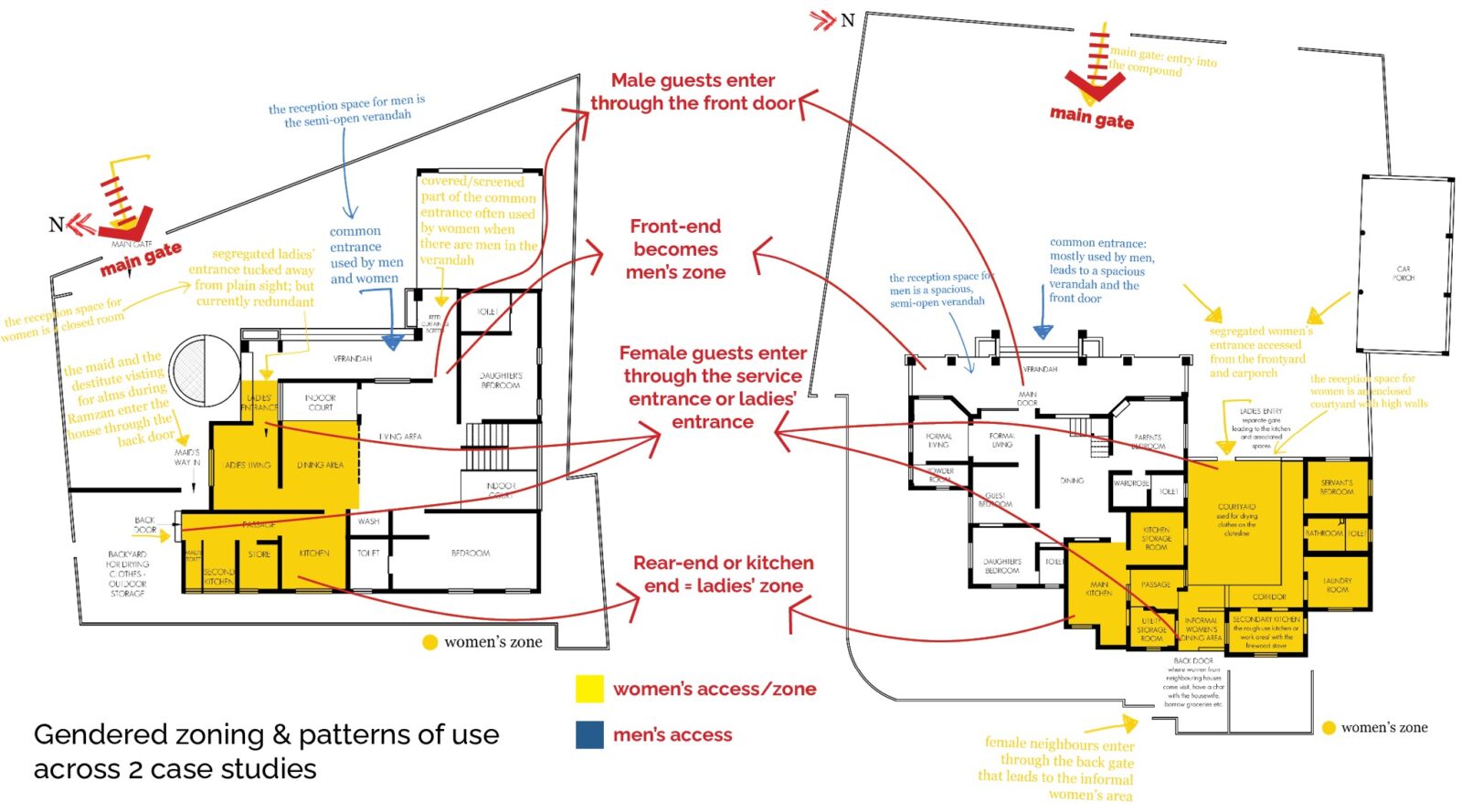Akma Nazar PhD

A routine scenario at the author’s Mappila home: while the father reads his newspaper on the open veranda, the mother takes refuge behind a wall to have a conversation with him, remaining constantly curious about events transpiring on the street and vigilant of herself and her body

Reimagining the Gendered Mappila Home: Spatial speculations on women challenging power structures in the contested home
Supervisors: Kate Jordan, Davide Deriu, Samir Pandya
The common representation of ‘home’ in popular discourse as a sacred, celebratory space of security and maximum individual autonomy is reductive, masculinist and underplays the extent to which home can be a contested site of conflict and a locus of power relations (Sibley, 1995; Blunt & Dowling, 2006). Yet in the Mappila community, a sub-culture of Muslims in the south-western Indian state of Kerala, and focusing on the (spatial) agency of Mappila women, this research attempts to unpack how the gendered spatial programmes of Mappila homes affect power structures and identity construction; it considers how Mappila women performatively reimagine the spatial frameworks of their agency through creative tactics against strategies of power in their daily lives (Lefebvre, 1974; Certeau, 1984; Butler, 1990).
This leads to an exploration of the possibility of reimagining the spatial programme of the Mappila home as a more democratic, gender-equitable space without compromising the religious faith and religiosity of Mappila women. The emphasis is on the agency of Mappila women, with the architect/researcher simply facilitating the articulation of Mappila women’s design aspirations.
Through a postcolonial, intersectional feminist lens, the research aims to address the interconnectedness of gender, religion, class and age as the multiple axes in the subjugation of Mappila women, and to challenge the misrepresentation of Mappila women in Eurocentric or western scholarship on the ‘Third World Woman’ – a powerless and monolithic subject (Mohanty, 1988; Spivak, 1988/2010; Abu-Lughod, 2013). The research methodology is informed by a hybrid framework combining conventional architectural research tools such as mapping, drawing and archival research (Lucas, 2016), and relational autoethnography (Adams et al. 2015), using qualitative feminist methods including family research (Adams & Manning, 2015) and friendship as method (Tillmann-Healy, 2003), valuing the relationship of the self with others to reflexively co-construct narratives for socio-cultural analysis and understanding.
